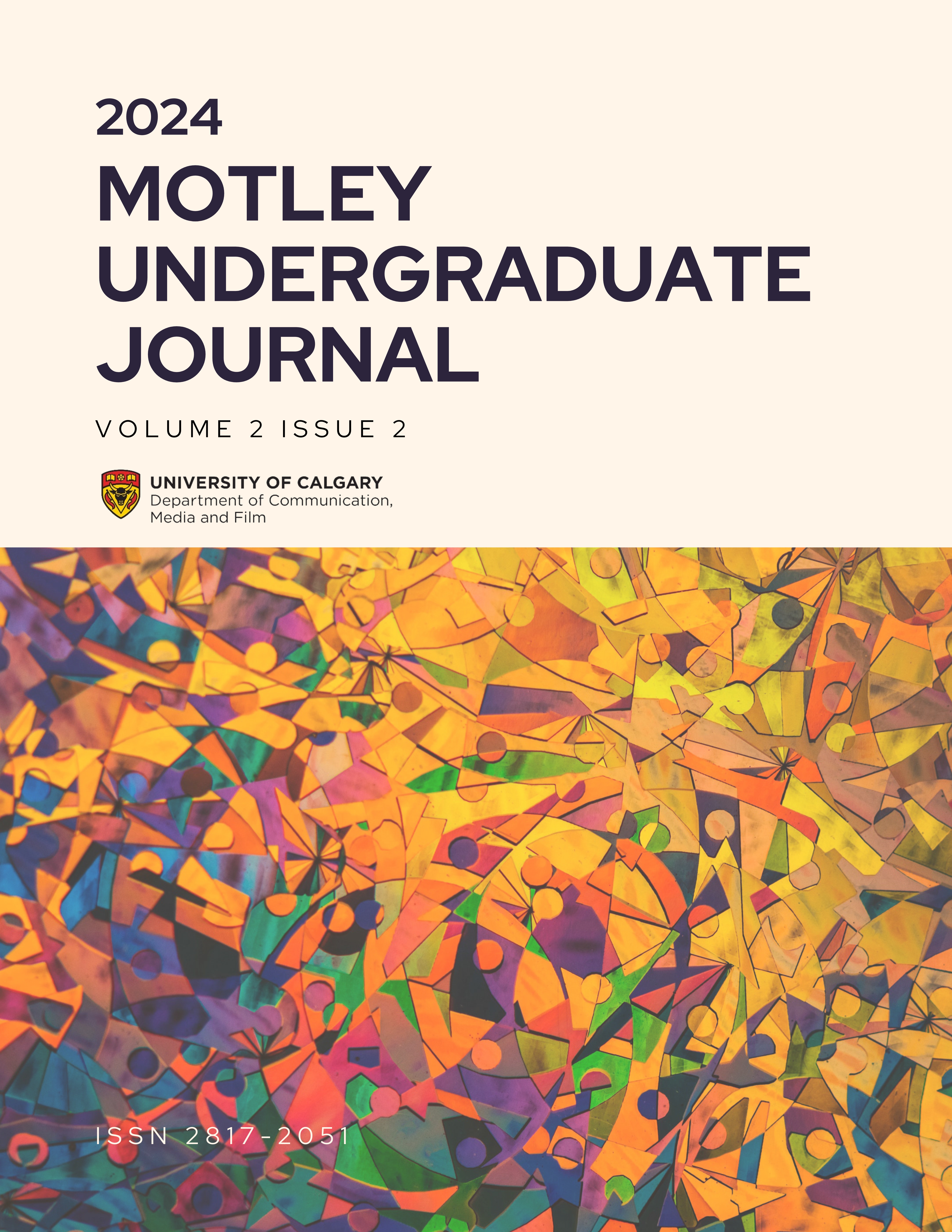An Aesthete Thinks About Herself for Too Long
An Auto-theoretical Conversation on Behalf of Aesthetics and It’s Importance in Our Society
DOI:
https://doi.org/10.55016/ojs/muj.v2i2.79824Keywords:
Social media, journalism, Instagram, ethnography, resistanceAbstract
This is an auto-theoretical essay on the importance of aesthetics and its nuances concerning identity. Autotheory is a literary practice in which the author presents a theory and uses autobiographical evidence to support it. There is a disregard for aesthetics on a societal level. Aesthetics are defined in this essay as personal tastes that are core to a person’s identity, whether that identity is true to the subject or what they feel they should aspire to be. When thinking about aesthetics, there is a common belief that aesthetics are a superficial aspect of one’s identity. While aesthetics is mostly visually based, this essay argues that aesthetics evoke deeper meaning based on the already established identity of the subject. Through the dissection of identities and their nuances, this essay discusses how aesthetics play a deeper role in identity and community building. This essay also breaks down certain connotations of aesthetics, especially concerning femininity and Blackness. There is a notion that women should care about how they look because they are expected to present ‘acceptably.’ If aesthetics concerns how subjects present themselves, this essay argues that there is a negative view of aesthetics due to its association with femininity. When analyzing femininity through the context of Blackness, aesthetics are now something that a Black female subject should aspire to, whether she wants to or not. This essay argues that the intersectionality of Blackness and femininity means that certain aesthetics can be imposed onto others. Aesthetics are integral to how subjects want to or feel they should express themselves. It is worth discussing because it can show how or why certain aesthetics are adopted or rejected. This essay also notes that an acknowledgment of one’s aesthetic can allow for a deeper understanding and appreciation of the subject’s self. Due to the unconventional nature of auto theory, this essay does not follow traditional essay rules in terms of format, voice, and language.
References
Atwood, M. (2011). The Robber Bride.
Britannica. (2024). “Aestheticism: art movement.” https://www.britannica.com/art/Aestheticism Accessed 7 October 2024.
Campbell, K. (March, 2016). “The Gown That Steals Your Heart.” Aramcoworld, https://www.aramcoworld.com/Articles/March-2016/The-Gown-That-Steals-Your-Heart#:~:text=In%20English%2C%20the%20Arabic%20word,decorated%20robes%20worn%20by%20women. Accessed 20 March 2024.
Chesson, K. (2021). “Stud Lesbians, Explained.” Autostraddle https://www.autostraddle.com/stud-lesbian/ Accessed 10 October 2024
Cleto, F. (1999). Camp: Queer Aesthetics and the Performing Subject: A Reader.
Dictionary.com (2024). “Butch.” https://www.dictionary.com/browse/butch Accessed 10 October 2024.
Fournier, L. (2022). Autotheory as Feminist Practice in Art, Writing, and Criticism.
Frizzell, N. (August, 2015). “#Arthoe: the teens who kickstarted a feminist art movement.” The Guardian https://www.theguardian.com/artanddesign/2015/aug/19/arthoe-teens-kickstart-feminist-art-movement-instagram-tumblr Accessed 7 October 2024
Gammage, M. (2016) Representations of Black Women in the Media: The Damnation of Black Womanhood.
hooks, b. (2014). “Eating the Other: Desire and Resistance.” Black Looks: Race and Representation.
Kretchmar, J. (2009) Gender Socialization.
Oxford Learner’s Dictionaries. (2024). “Aesthete.” Oxford Advanced Learner’s Dictionary. https://www.oxfordlearnersdictionaries.com/definition/english/aesthete#:~:text=%2Fˈesθi%CB%90t%2F-,%2Fˈesθi%CB%90t%2F,of%20art%20and%20beautiful%20things. Accessed 20 March 2024.
Oxford Learner’s Dictionaries. (2024). “Keffiyeh.” Oxford Advanced Learner’s Dictionary. https://www.oxfordlearnersdictionaries.com/definition/english/keffiyeh#:~:text=%2Fkəˈfi%CB%90jə%2F-,%2Fkəˈfi%CB%90jə%2F,and%20fastened%20by%20a%20band. Accessed 20 March 2024.
Schwarz, J. (2017) Counseling Women Across the Life Span: Empowerment, Advocacy, and Intervention.
Downloads
Published
Issue
Section
License
Copyright (c) 2024 Shae

This work is licensed under a Creative Commons Attribution-ShareAlike 4.0 International License.
Copyright Policy
The Motley Undergraduate Journal is an Open Access article distributed under the terms of the Creative Commons Attribution 4.0 Share-Alike License. Under this license, users are free to share (copy, distribute and transmit) and remix (adapt) the contribution, including for commercial purposes, providing that the original work is properly cited. Under Creative Commons, authors retain copyright in their articles.
Author Self Archiving Policy
Authors are permitted to post their work online in institutional/disciplinary repositories or on their own websites. Pre-print versions posted online should include a citation and link to the final published version in The Motley Undergraduate Journal as soon as the issue is available; post-print versions (including the final publisher's PDF) should include a citation and link to the journal's website.

